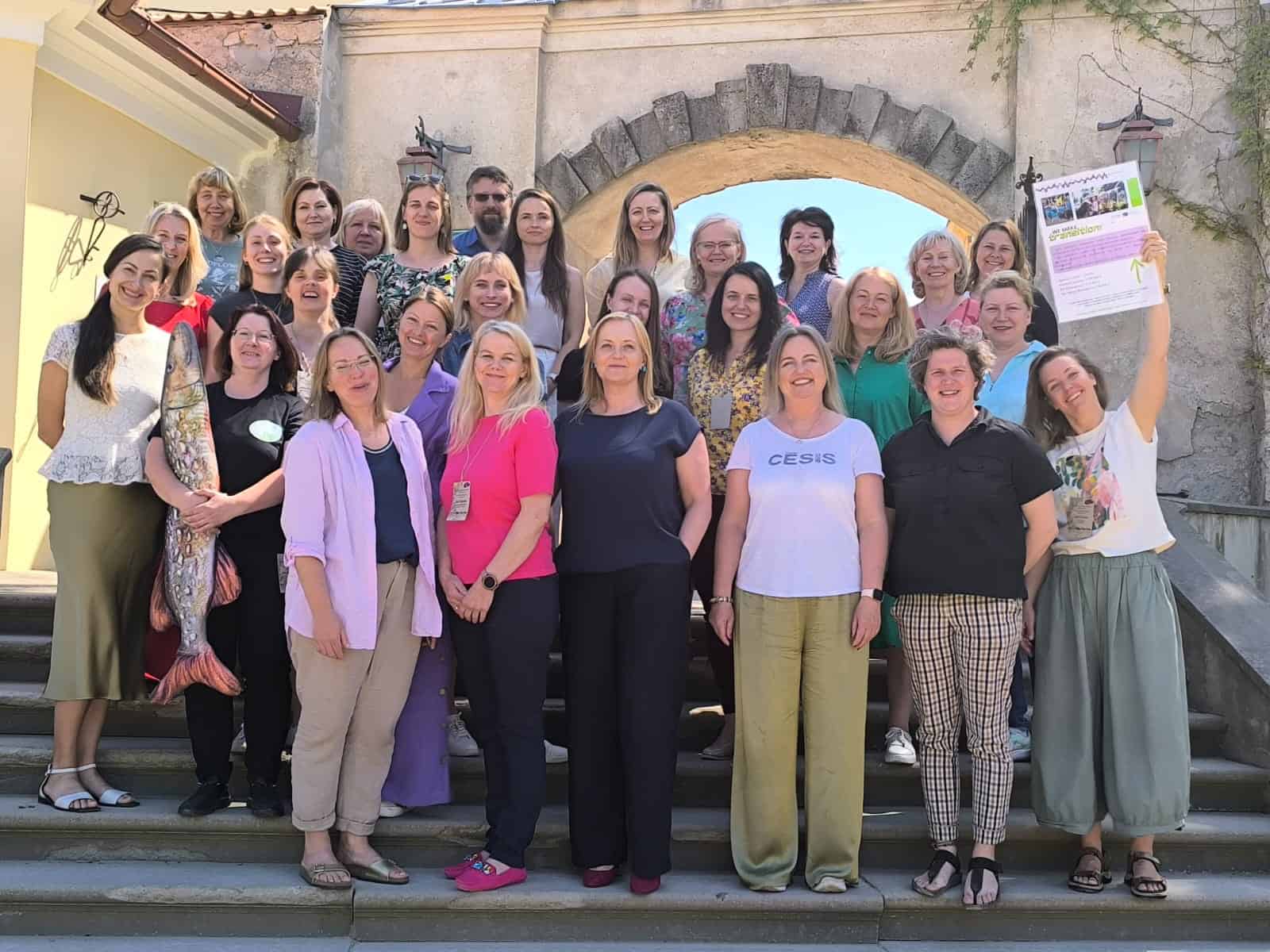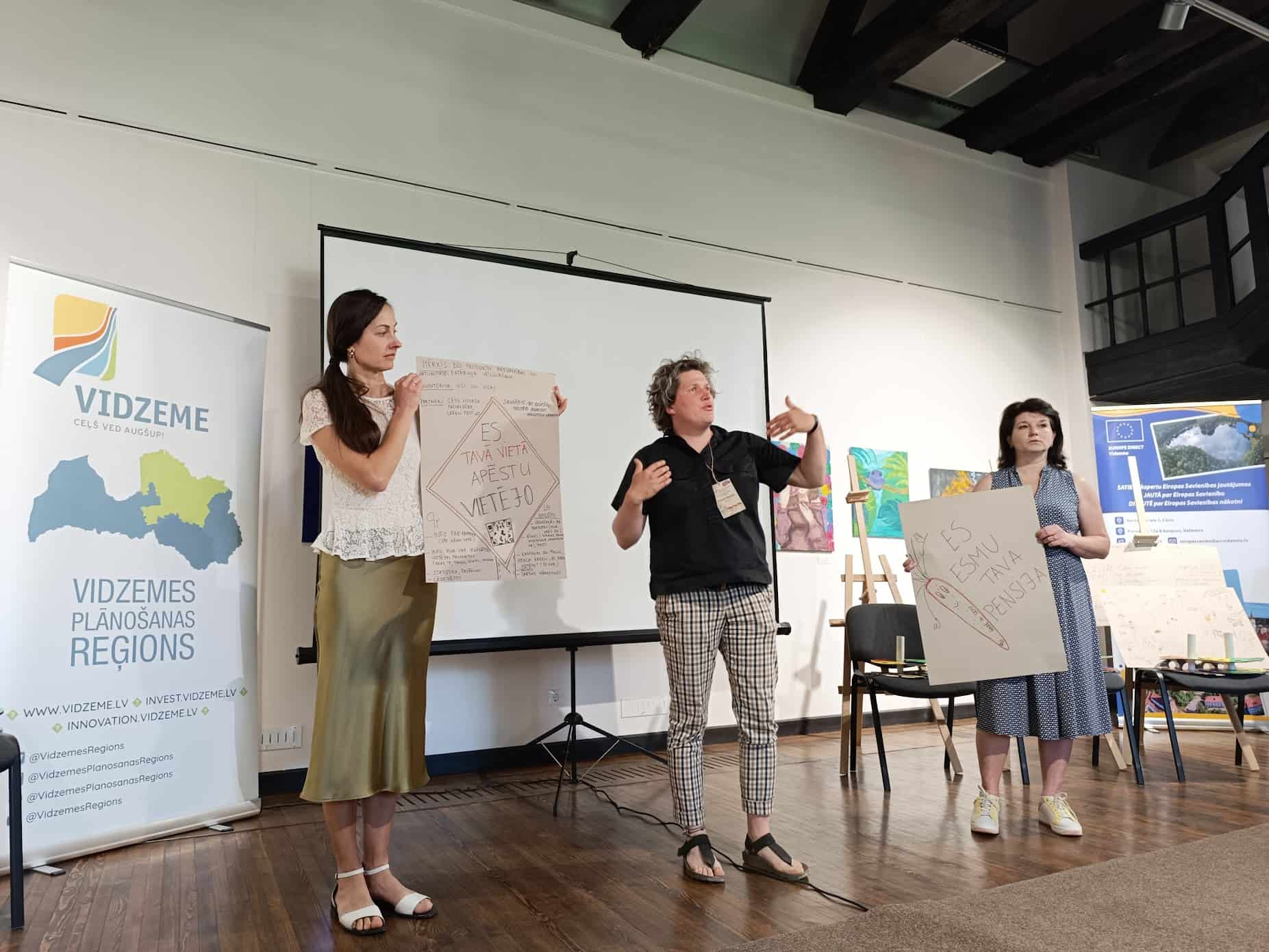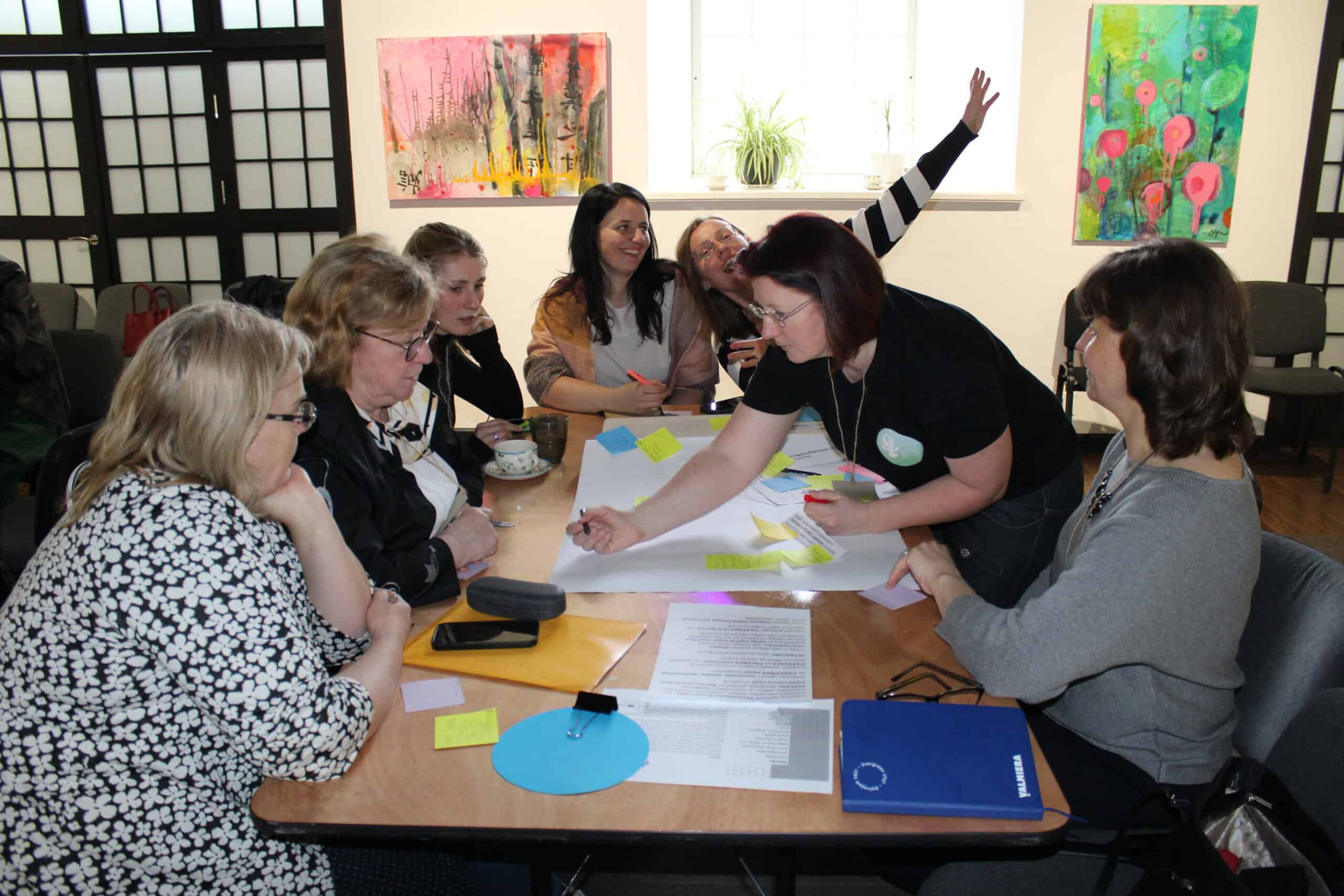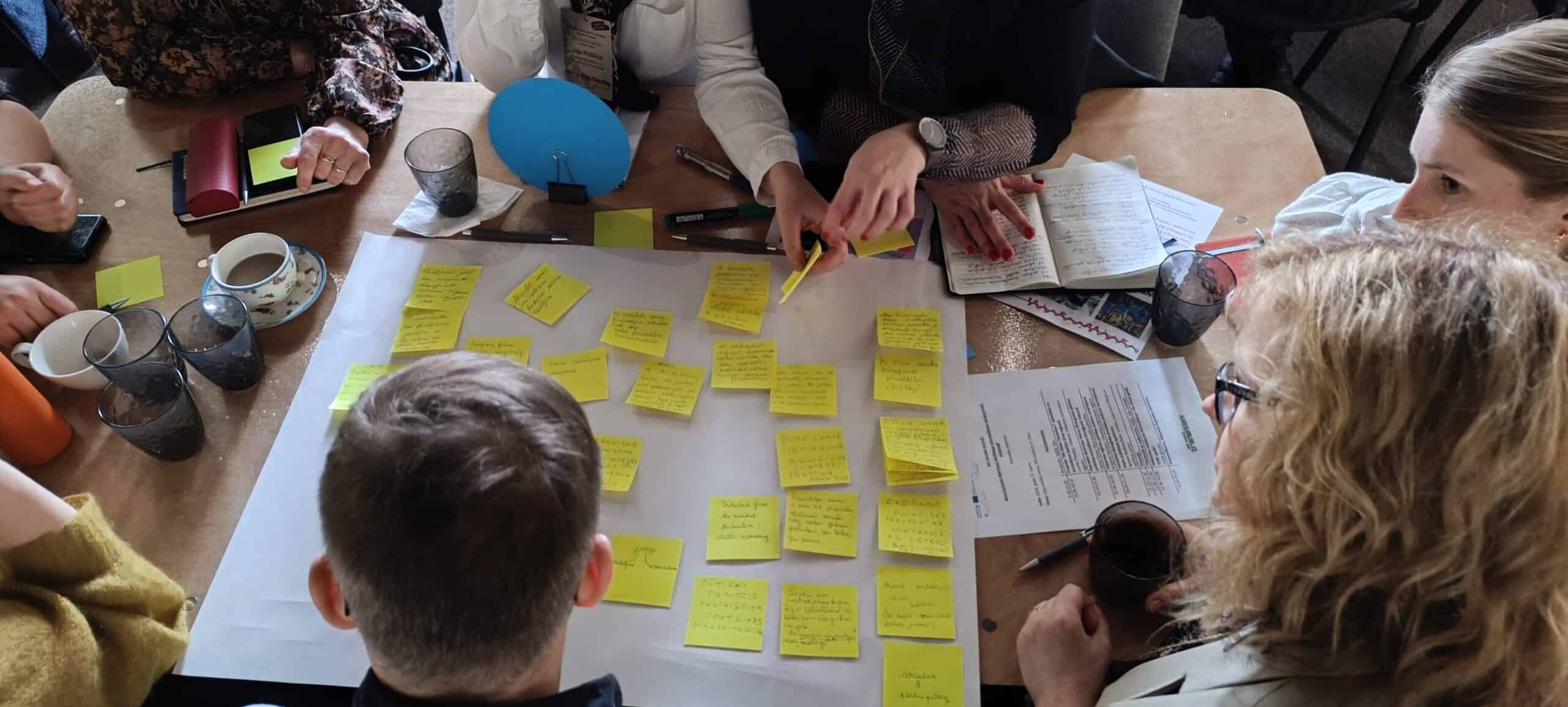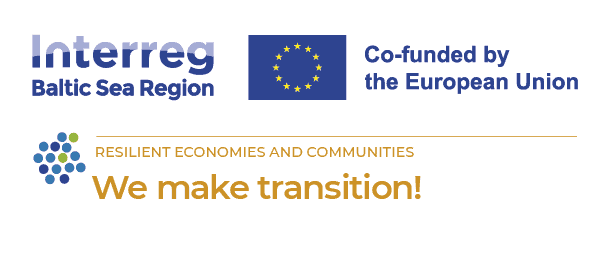
Added value of We make transition! – Interview with Vidzeme Planning region
09 July 2024
One of the We make transition! project partners is Vidzeme Planning region in Latvia. The project team at VPR – Lienīte Priedāja-Klepere, Zane Pīpkalēja and Anita Āboliņa – describe below how We make transition! project has benefited their region.
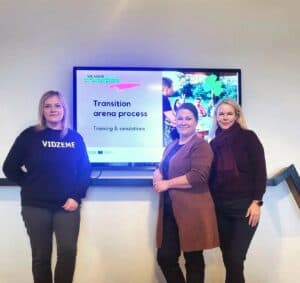
What is the key challenge the project aims to solve?
The practice of public participation in Latvia has been implemented quite recently and has been reinforced in legislation, providing for the organisation of public consultation meetings. For example, municipal administrations gather local residents to discuss important decisions and planned activities that could affect the community. However, these processes are often formal, with both sides failing to utilise the potential of public engagement effectively. Both communities and territorial administration specialists lack the knowledge on how to organise this process efficiently. The attitude of local actors towards participation is often passive due to a lack of positive examples. Therefore, it is essential to seek new cooperation models, as sustainability challenges demand changes in traditional approaches.
The key solution of We make transition! is to directly engage and motivate local actors to be involved in the development process that influences their lives and activities. Political will is needed at the local government level, clearly expressing a commitment to listen to opinions and grass-root ideas, and together develop solutions that meet the needs of the residents.
What have been the greatest highlights of the project so far?
We make transition! has significantly contributed to the development of a comprehensive sustainability initiative in Vidzeme – to develop the region as a Bioregion. It means that the region should be based on circular and organic economy as much as possible.
During spring 2023, the focus group discussions within the project centered around the Bioregion concept. Focus groups became a venue for discussions where local entrepreneurs and civil society actors improved common understanding of the concept with representatives of Cēsis municipality and other municipalities of the region, discussed real actions, and created a local vision for the Bioregion. Organising the discussions stimulated the involved parties to clearly define common goals and be actively involved in the idea formation process from the outset.
In October 2023, a Bioregion Forum was organised, attracting an unexpectedly large number (over 100) of participants who signed a Bioregion Memorandum to agree on the joint vision. After that, the central theme of the We make transition! local transition arena was chosen based on the priorities outlined in the Bioregion Memorandum: promoting sustainable, healthy lifestyle and organic food in the region. The transition arena workshops in spring 2024 focused especially on promoting use of organic food in public institutions, including kindergartens, schools, nursing homes and hospitals.
At the end of the transition arena workshop process, the participants voted for 5 proposed initiatives to be implemented with the aim of increasing the consumption of organic products in the region. The initiative “School Restaurant Week in Cēsis” got the most votes. The initiative will be organized with the aim of inspiring schools and municipalities and taking a step towards the reform of the school catering system by offering school menus based on local organic products. During Restaurant Week, there will be a strong emphasis on strengthening table culture and etiquette as well, making school dining an enjoyable experience.
With help of We make transtion! project, the local actors became more engaged in realizing and implementing the Bioregion concept. The collaborative effort also formed a robust Bioregion support team—one that looks beyond current obstacles and proactively envisions the necessary steps to achieve the desired future state. The transition arena process was essentially a new approach for most of participants. This was the first attempt to transition from idea to action – specific implementable activities that originated from within the community itself, gained general acceptance through democratic voting, with clearly defined responsibilities and necessary resources.
What is the most important transnational value from the project?
Such workshops create closer ties between key idea drivers – thus we can say that the project’s activities have broadened and strengthened the local network. Moreover, working in an international team and meeting various specialists and experts from other countries has expanded our own perspectives and knowledge on various issues.
The transfer of knowledge and exchange of experiences is the highest value that participation in European Union projects can provide. In We make transition! the strong engagement of civil society actors from all partner countries has provided deeper learning on social innovations and grassroot activities in different countries.
What have you got personally from the project?
By exploring the “local transition arena” method and understanding its essence, one gains a conscious benefit from future visioning that is not locked in all current problems, challenges, and obstacles that might hinder dreaming. This method is applicable not only in professional work but is also useful for achieving individual goals and setting new ones.






